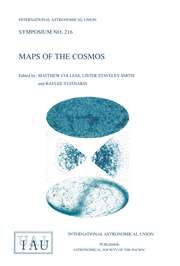No CrossRef data available.
Article contents
Fluctuations in the Microwave Background Caused by Anisotropy of the Universe and Gravitational Waves
Published online by Cambridge University Press: 14 August 2015
Extract
The problem described in the title has already been theoretically analysed several times (see for example Dautcourt, 1969 and Novikov, 1974). Recently, however some important new aspects of the problem have been discovered; they are discussed briefly in this report which is based upon the calculations of Doroshkevich, Lukash, Novikov and Polnarev. First consider the influence of primordial gravitational waves on the microwave background. It is natural to assume that in the Universe, in addition to acoustic (or adiabatic) density perturbations which result in galaxy formation and corresponding metric perturbations, there also exist metric perturbations in the form of gravitational waves with wavelengths of the same order of magnitude as the acoustic perturbations. The amplitude of such gravitational waves could in principle be quite arbitrary. Their amplitude can be estimated by comparing the theory of such waves in the expanding Universe with the observed fluctuations in the microwave background which are now available or will be in future.
- Type
- VI. Microwave Background Radiation
- Information
- Symposium - International Astronomical Union , Volume 74: Radio Astronomy and Cosmology , 1977 , pp. 335 - 339
- Copyright
- Copyright © Reidel 1977


